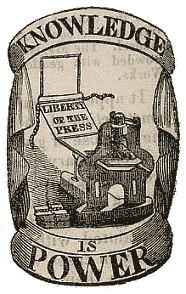

"The officially stated goals of the foreign policy of the United States, as mentioned in the Foreign Policy Agenda of the U.S. Department of State, are "to create a more secure, democratic, and prosperous world for the benefit of the American people and the international community." In addition, the United States House Committee on Foreign Affairs states as some of its jurisdictional goals: "export controls, including nonproliferation of nuclear technology and nuclear hardware; measures to foster commercial intercourse with foreign nations and to safeguard American business abroad; International commodity agreements; international education; and protection of American citizens abroad and expatriation."Source: Wikapedia
American foreign policy has been the subject of much debate, criticism and praise both domestically and abroad, and I choose to throw a little more coal on the debate fires.
Recent activity, or I should say, lack of activity in the ongoing war-like situation in Lebanon indicates that we as a Country seem to be loosing the battle for the hearts and mind of the Lebanese.
The following excerpts are from the Feb. 6, 2008 issue of TheMiddle East Times.
"Indeed after the momentum of the spring 2005 revolution, it really looks like the West has given up on Lebanon and left the anti-Syrian forces in the mud. This trend has been quite clear in the past few months. Even after 29 terror attacks (since October 2004), targeting anti-Syrian personalities (mostly journalists and politicians), believed by many analysts to have been ordered by Damascus, the West is giving a free pass to the regime of Bashar Assad.
All the more mind-boggling is that recently Western targets have been victims of Syria's terror policy, according to some intelligence analysts. UNIFIL forces stationed in Lebanon have been murdered and on Jan. 15, a U.S. embassy vehicle was targeted. One would think that the West would react accordingly to attacks on its citizens, by retaliating with force or diplomacy. But nothing....
On the contrary, in the past year, Syria has been very much courted by the West, from U.S. House Speaker Nancy Pelosi, to the Belgians, Italians, Spanish, Germans, and lately the French. In fact, the Nicolas Sarkozy administration was put in charge, by its allies (most notably the United States), to deal with the Lebanese situation and in particular the selection of the next president in Lebanon".
All the more mind-boggling is that recently Western targets have been victims of Syria's terror policy, according to some intelligence analysts. UNIFIL forces stationed in Lebanon have been murdered and on Jan. 15, a U.S. embassy vehicle was targeted. One would think that the West would react accordingly to attacks on its citizens, by retaliating with force or diplomacy. But nothing....
On the contrary, in the past year, Syria has been very much courted by the West, from U.S. House Speaker Nancy Pelosi, to the Belgians, Italians, Spanish, Germans, and lately the French. In fact, the Nicolas Sarkozy administration was put in charge, by its allies (most notably the United States), to deal with the Lebanese situation and in particular the selection of the next president in Lebanon".
History should have taught Nancy Pelosi and Western European powers that engaging a regime like Assad's does not work;( you can't bargain with the devil)on the contrary it actually emboldens them.
Syria has now adopted an even tougher stance. Assad can be really satisfied with his strategy. He did not concede anything, he publicly humiliated France and he showed that he was a key partner who broke out of his prior isolation.
Last week, in Washington, a courageous Shiite leader, Ahmad al-Assad, who is vehemently opposed to Hezbollah, clearly summed up his frustration when he rightly pointed out that Damascus and Tehran are being given a free pass. Critics of the regimes in Damascus and Tehran say, "These two dictatorial regimes actually feel no Western pressure whatsoever for their role in spreading chaos, blood and mayhem in Lebanon. So why should they stop?"
If the West is serious about winning the war against radical Islam, Lebanon is a key battle that should be fought. The Lebanese people deserve no less, and least you forget, the real player in Lebanon is Iran. They have established a close relationship with the Lebonese Shiite movement Hezbolla.
Iranian supplies missles to Hezbollah, either by sea or overland via Syria, this is well known. U.S. government officials say the current conflict also indicates that some of the rockets in Hezbollah’s arsenal — including a 220-millimeter rocket used in many deadly attack on Israel were made in Syria.
President Bush has apparently shoved the Lebanese problem to the back of his mind.
After years of berating Damascus, the sudden silence regarding Syria in President George W. Bush's final State of the Union address was deafening.
Syria is already looking ahead to the post-Bush years, hoping to convince the next U.S. administration that perhaps in return for the Golan Heights, occupied by Israel in the 1967 war, and a free hand in Lebanon, Damascus would be willing to scrap its alliance with Tehran.
A Democratic victory in November will seal the fate of not only Lebannon but Israel in my opinion!








No comments:
Post a Comment